Imagine harnessing the sun’s power to reduce your energy bills and even earn some money significantly. With solar panels, UK homeowners can do just that! In this blog post, you’ll learn about the cost of solar panels UK, the savings and benefits of solar panels, and how they can contribute to a greener, more sustainable future.
Short Summary
- Solar panel installation in the UK ranges from £4,700 to £11,000 and can save up to £557 annually on electricity bills.
- Investing in additional components, such as solar batteries and inverters, may offer long-term savings that make it worthwhile.
- Homeowners can benefit from government grants & schemes along with potential returns of up to £40,325+ over 25 years!
Average Cost of Solar Panels in the UK
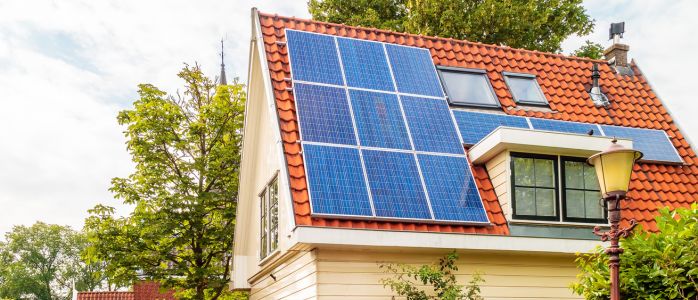
The cost of solar panels in the UK varies depending on several factors. On average, prices range from £4,700 to £11,000, with a 3.5 kW system costing around £7,860. These numbers might seem high, but consider the long-term benefits and savings you’ll experience through reduced energy bills and government incentives. Plus, solar panel costs have decreased due to higher demand and technological advancements, making it an even wiser investment.
In addition to the initial cost of the panels themselves, you’ll need to factor in other expenses such as installation, maintenance, and any additional components you choose to install. In the following sections, we’ll break down these costs and help you decide whether solar panels are right for you.
Factors Affecting Solar Panel Costs
The cost of solar panels is influenced by several factors, including:
- System size
- Panel type
- Installation process
- Additional components
- Location-specific labour costs
The size of the solar panel system directly impacts the cost, as larger systems require more panels and other components to be installed.
Regarding panel types, there are two main options to help you save money on electricity: monocrystalline and polycrystalline. Both types harness solar power to generate electricity for your home.
The installation process also affects costs, as additional components like inverters, solar battery storage systems, and wiring may be needed, and labour costs can vary depending on the location.
Price Range for Different System Sizes
Solar panel system costs can be tailored to fit your specific needs. Smaller systems offer an economical option, while larger systems provide better value per kW. Using solar-generated electricity, you could save between £175 and £420 per year on your electricity bill, depending on factors such as energy consumption and panel efficiency.
A £4,716 solar panel system will, on average, benefit smaller households. For larger households, the average savings from investing in solar panels stands at £11,005. For a 3.5 kW system, you could look at around £7,860, the average cost of solar panels in the UK.
Solar Panel Installation Costs
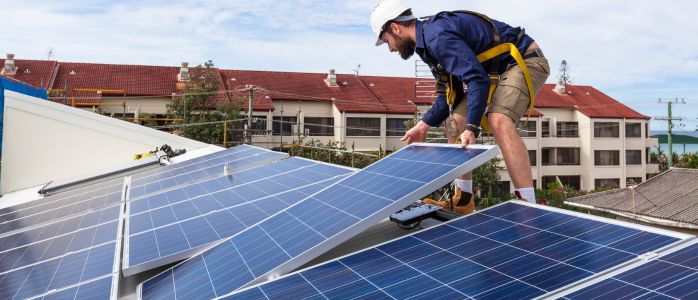
In addition to the solar panel cost, you’ll need to consider the expenses related to installation. Here are some factors to consider.
- Labour costs for solar panel installation range from £300 to £500 per person per day, depending on your location in the UK.
- The complexity of the installation will also affect labour costs.
- Factors such as accessibility to the property, roof strength, and panel angle are all important considerations for a successful installation.
Additional components are also to consider, such as inverters, batteries, and pigeon-proofing. While these components can increase the overall cost of the installation, they may offer long-term benefits and savings. Let’s explore these components and their associated costs in more detail.
Labour Costs
Labour costs account for 10-30% of the total installation cost and can vary depending on the complexity of the installation and the location. For example, labour costs can range from:
- £900
- £1,200
- £1,500
- £2,200
This offers a variety of options to choose from.
It’s also important to note that labour costs can be influenced by the property’s location, with some areas of the UK commanding higher rates than others. To get the best value for your money, it’s crucial to shop around and compare quotes from trusted solar panel installers in your area.
Additional Components and Their Costs
Additional components, such as solar batteries and inverters, can increase the overall cost of installing solar panels, but they may offer long-term benefits and savings. For instance, solar batteries can store excess energy generated by solar panels, allowing homeowners to use solar power during peak hours or when panels are not generating electricity.
The solar battery cost for a three-bedroom house is typically around £4,500, but the potential long-term savings can make this investment worthwhile. Inverter replacement is another expense, with costs averaging around £1,200. However, ensuring optimal performance with these additional components can help maximize the lifespan and efficiency of your solar panel system.
Savings and Earnings from Solar Panels
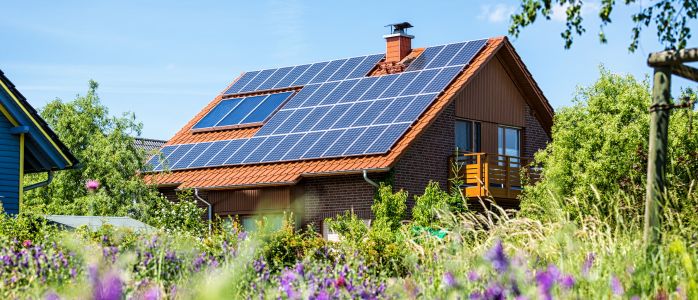
Solar panels can save homeowners money on energy bills and generate income through the Smart Export Guarantee (SEG) scheme, which pays for surplus energy exported to the grid. Using solar-generated electricity, you can save between £175 and £420 per year on energy bills, depending on factors such as energy consumption and panel efficiency.
The SEG scheme is an amazing opportunity for homeowners to be rewarded for the solar energy they generate but doesn’t use, which then gets used by the National Grid. Payments for exported energy can vary between energy suppliers, with export tariffs ranging from 1p to 16p per kWh. A 5kW system can earn homeowners up to £120 per year.
Reducing Energy Bills
Using solar-generated electricity can save homeowners money on energy bills, with the average three-bedroom household in the UK potentially saving £557 per year on electricity bills by installing a 3.5 kWp solar panel system. The key to maximizing these savings is to use most of the solar electricity generated by the solar panels, as any excess energy will be exported to the grid and may not be compensated at the same rate as the energy you consume.
However, even with SEG payments for exported energy, homeowners can still experience significant savings on their energy bills over time. This makes solar panel installation a highly attractive investment for those looking to reduce their energy expenses and contribute to a greener future.
SEG Payments and Export Tariffs
The Smart Export Guarantee (SEG) scheme rewards homeowners for the surplus solar-generated electricity they export to the National Grid. The amount paid for excess energy generated by solar panels under the SEG scheme ranges from an encouraging 1p per kWh to an impressive 16p per kWh.
Different energy suppliers offer different tariff rates for exported solar energy, so shopping around and finding the best deal for your unique situation is essential. By taking advantage of the SEG scheme, homeowners can save money on their energy bills and generate income from their solar panel investment, further increasing the financial benefits of solar panel installation.
Solar Batteries and Their Impact on Costs
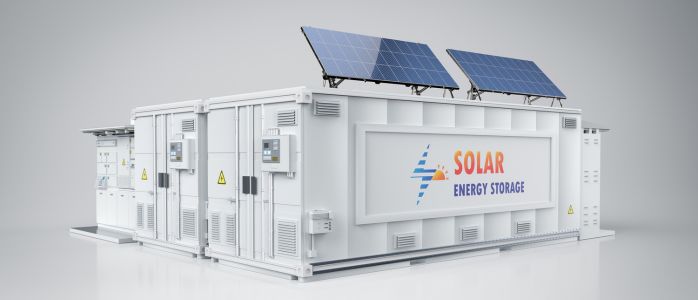
Solar batteries play an essential role in maximizing the benefits of solar panel systems, as they allow homeowners to:
- Store excess energy generated by the panels for later use
- Use solar power to power their homes even when the sun isn’t shining or during peak energy demand hours
- Increase energy independence
- Potentially reduce reliance on the grid
While solar batteries can increase the overall cost of the installation, the long-term savings and advantages they offer can make this investment worthwhile.
Let’s explore the different types of solar batteries and how they can be integrated with solar panel systems.
Types of Solar Batteries
Solar batteries come in various types and capacities, with prices ranging from £1,200 to £6,000. The specific type and capacity of the battery you choose will depend on factors such as your energy consumption, the size of your solar panel system, and your budget. Some popular solar battery options include lithium-ion, lead-acid, and flow batteries, each with advantages and drawbacks in terms of efficiency, lifespan, and cost.
When selecting a solar battery, it’s essential to consider the initial cost and the long-term benefits, such as increased energy independence and potential savings on energy bills. By carefully choosing the right solar battery for your needs, you can further enhance the value and performance of your solar panel system.
Integration with Solar Panel Systems
Integrating solar batteries with solar panel systems can increase the overall installation cost but may offer long-term savings and increased energy independence. By storing excess energy generated by the solar panels, homeowners can use this stored power during peak hours or when the panels are not generating electricity, reducing reliance on the grid and potentially lowering energy bills.
In addition to the benefits of energy storage, solar batteries can also help stabilize the grid by providing a more consistent and reliable source of electricity through a solar battery storage system. This can be especially valuable during high energy demand or grid instability.
By integrating solar batteries with solar panel systems, homeowners can unlock incredible long-term savings and energy independence through a solar PV system.
Break-even Point and Return on Investment

The UK’s break-even point for solar panel systems is typically between 7 and 14 years, depending on system size, energy consumption, and electricity prices. This means that, after this period, the savings generated by the solar panels will have covered the initial investment, and any additional savings can be considered profit.
In addition to the break-even point, the return on investment for solar panels can also be attractive. After 25 years, the long-term savings and profits from solar panels can range from £21,250 to £40,325+, making solar panel installation a wise financial decision for many homeowners in the UK.
Factors Affecting Payback Period
The payback period for solar panel systems can be influenced by several factors, including:
- The initial cost of the system
- Energy savings
- SEG payments
- Any additional maintenance or replacement costs
By understanding these factors and optimizing the efficiency and performance of your solar panel system, you can potentially shorten the payback period and increase the overall return on investment.
For example, staying at home and using solar-generated electricity can help you save on your bills, but you’ll export less energy to the grid, which may affect your SEG payments. Additionally, maintaining your solar panels annually and replacing components such as inverters when necessary can help ensure optimal performance and lifespan, improving the return on investment.
Long-term Savings and Profits
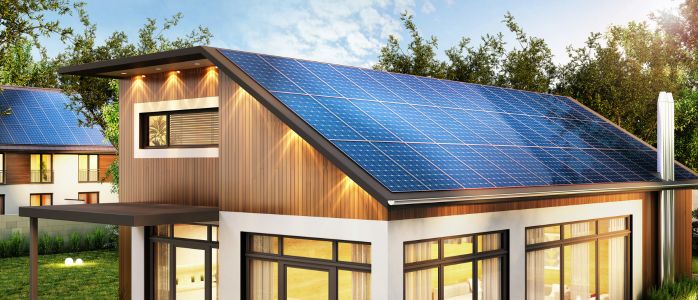
Over the long term, solar panels can offer significant savings and profits for homeowners in the UK. As mentioned, after 25 years, the potential long-term savings and profits from solar panels can range from £21,250 to £40,325+. This impressive return on investment makes solar panel installation an attractive option for many homeowners looking to reduce their energy bills and contribute to a greener future.
By investing in solar panels, homeowners can not only save money on their energy bills but also generate income through the SEG scheme and potentially increase the value of their property. Solar panels can be a highly rewarding investment for years with the right planning and maintenance.
Solar Panel Suitability and Maintenance
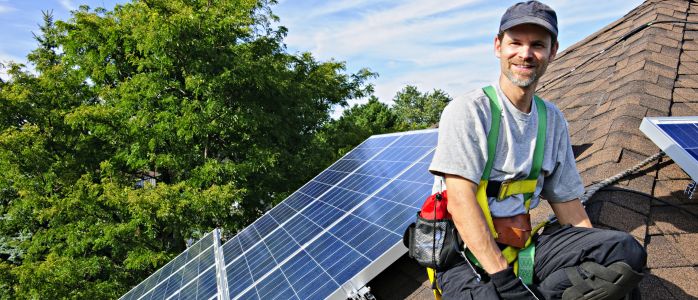
Assessing roof suitability and maintaining solar panels are essential for maximizing efficiency and lifespan. Factors such as orientation, pitch, shading, and structural strength can all affect the efficiency and output of solar panels, making it crucial to consider these aspects when planning a solar panel installation carefully.
In addition to assessing roof suitability, regular maintenance and cleaning of solar panels are vital to ensure optimal performance and prevent issues such as reduced efficiency due to dirt and debris. Let’s explore the importance of roof suitability and maintenance in more detail.
Assessing Roof Suitability
The suitability of a roof for solar panel installation is determined by factors such as:
- Orientation
- Pitch
- Shading
- Structural strength
South-facing roofs are ideal for solar panels in the UK, as they receive the most sunlight and can, therefore, generate the most electricity. The optimal angle for a roof for solar panels lies between 10 and 60 degrees.
Shading can also significantly impact solar panel output, with even slight shadows from objects like chimneys or trees drastically reducing the entire system’s performance. By carefully considering these factors and selecting the most suitable location for your solar panel installation, you can maximize your solar panels’ efficiency and energy output.
Maintenance Requirements and Costs
Solar panels require minimal maintenance, but occasional cleaning and inverter replacement may be necessary to ensure optimal performance. Dirt, debris, and bird droppings can reduce the efficiency of solar panels, so regular cleaning is essential to keep them functioning at their best. The cost of professional solar panel cleaning in the UK is typically around £100.
In addition to cleaning, the inverter may need to be replaced during the lifespan of your solar panel system. The cost of inverter replacement averages around £1,200.
By performing regular maintenance and addressing any issues promptly, you can help ensure your solar panel system’s longevity and optimal performance.
Financial Assistance and Incentives for Solar Panels

Financial assistance and incentives are available for homeowners installing solar panels in the UK. These can help reduce the overall cost of solar panel installation, making it more accessible and affordable for a broader range of homeowners.
From government grants and schemes to VAT reductions, numerous options exist when considering financial assistance for solar panel installation. Let’s look at some of these options and their potential benefits.
Government Grants and Schemes
The UK government offers grants and schemes to help make solar panel installation more accessible. The Energy Company Obligation (ECO4) scheme is a government-funded program that assists with energy-saving measures such as having solar panels installed to eligible households on certain benefits or with a low income.
Another government program is the Smart Export Guarantee (SEG) scheme, which rewards households with payments for the electricity they generate from solar panels but don’t use, which then gets used by the National Grid. By taking advantage of these government grants and schemes, homeowners can reduce the upfront cost of solar panel installation and make it a more achievable and rewarding investment.
VAT Reductions and Other Incentives
In addition to government grants and schemes, VAT reductions on energy-saving materials can also help reduce the overall cost of solar panel installation. Currently, the VAT rate on solar installations in the UK is 0% until 2027, making it an opportune time to invest in solar panels and save on installation costs.
Other incentives, such as group-buying initiatives like Solar Together, can help homeowners save on solar panel costs by pooling resources and securing better deals on materials and installation services. By exploring these financial assistance options and incentives, homeowners can make solar panel installation more affordable and attainable.
Summary
In conclusion, solar panels offer numerous benefits for UK homeowners, from reducing energy bills to generating income through the Smart Export Guarantee scheme. With the right planning, maintenance, and financial assistance, solar panel installation can be a wise and rewarding investment for years to come. Now is the time to harness the sun’s power and contribute to a greener, more sustainable future.
Frequently Asked Questions
What is the average cost of installing solar panels in the UK?
The average cost of installing solar panels in the UK can range from £2,000 to £18,000, depending on the system size, type of panels, and installation complexity.
A 1-4 kW system typically costs between £3,000 and £8,000.
Are solar panels in UK worth it?
Solar panels are a significant investment – you’ll save on energy bills, reduce your carbon footprint and become less dependent on the grid. Average households are estimated to break even within 14 years.
So if you’re looking for an eco-friendly option that also saves money, solar panels in the UK are worth it.
How many solar panels do I need for a 3-bedroom house in the UK?
You need ten solar panels to power a 3-bedroom house in the UK. Each panel is rated at 350 watts, for an average of 2,645 kWh per year – enough to meet most of your electricity needs during daylight hours!
Solar energy is a great way to reduce your carbon footprint and save money on energy bills. It’s also a reliable energy source, as the sun will always be there.
Can you still get free solar panels UK?
You can still get free solar panels in the UK with the ECO4 scheme, available for low-income, vulnerable and fuel-poor households receiving certain benefits until March 2026. To be eligible for free solar panel grants, you must meet specific requirements and have an inefficient heating system within the D-G energy efficiency band.
The ECO4 scheme is funded by the government and administered by energy suppliers. It provides free solar panels and other energy efficiency measures to eligible households. The scheme is designed to help reduce energy bills and improve the energy efficiency of homes.
What is the average cost of 1 solar panel?
Solar panels cost, on average, approximately £200, with prices ranging from £100 to over £500, depending on their efficiency, power output, warranty and brand.
